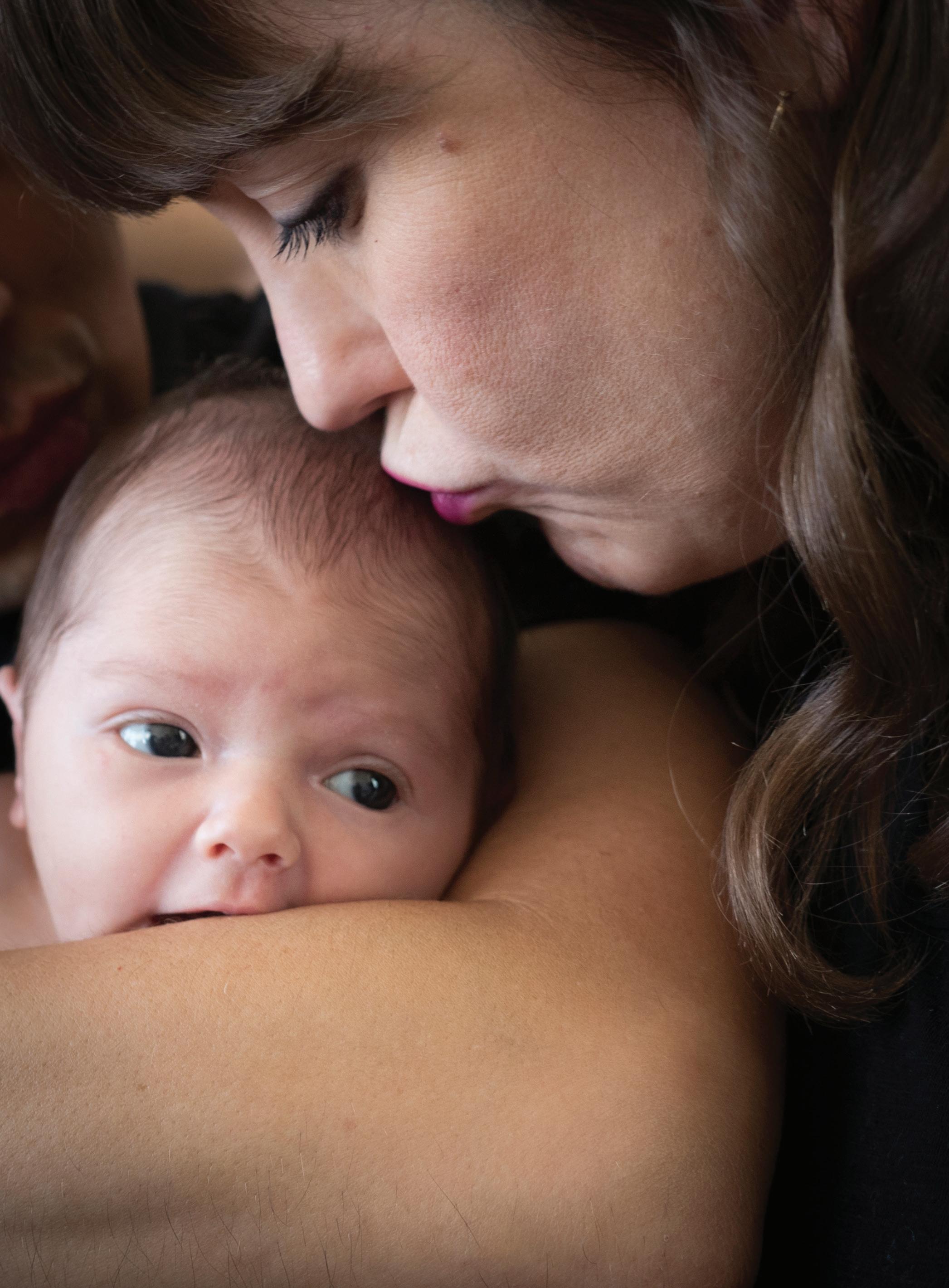
FIRST YEARS the PREGNANCY & LABOR REALITY CHECK PLANNING FOR PREGNANCY, BIRTH & POSTPARTUM SURPRISES TAKE A PAID FAMILY LEAVE-CATION BABY SCIENCE: UW STUDIES 5 PARKS FOR WADDLERS & TODDLERS DO TODDLERS NEED TODDLER MILK?
by
FROM ‘I’M PREGNANT!’ TO TODDLER SPECIAL SECTION
photo
CHERYL MURFIN
F
pregnancy and labor
Reality Check
or a lot of people, the dream begins the moment a pregnancy is confirmed: You’ll enjoy nine months of carefree eating, your libido will go into overdrive, and your birth will happen exactly as planned, right down to your partner in tears as they cut the cord.
And for a lot of people, the dream and reality never meet.
by CHERYL MURFIN, CD, MA/IAE
What’s a parent to do? Here’s a reality check on some popular “dreams,” and how to cope: Dream: You’re pregnant. You’ll feel happy through these months.
Reality: One in seven people (15%) experience perinatal depression—a mild to severe depression during pregnancy.
According to March of Dimes, it’s one of the most common complications of pregnancy. If any of these symptoms during or after pregnancy last longer than two weeks, speak to your provider: feeling restless or irritable; feeling sad, hopeless, and overwhelmed; crying a lot; having no energy or motivation; eating too little or too much; sleeping too little or too much; trouble focusing, remembering or making decisions; feeling worthlessness and guilt; loss of interest or pleasure in activities; withdrawal from friends and family; having headaches, chest pains, palpitations
we didn’t expect that
Plan now for common postpartum ‘surprises’
by MEGAN DAVIS, CPD photograph by JOSHUA HUSTON
Babies bring a lot of surprises. As a certified postpartum doula for 17 years, I’ve seen time and again how planning ahead can help navigate the waters of early parenthood. From practical to philosophical, here are some tools to help new parents stay in the driver’s seat on the postpartum road.
1
The first six weeks can be the hardest emotionally. From feeding to bonding, what you expected to feel or do may not match reality. Moments of grief and regret are as common as the joy a newborn can bring. Adjusting to a huge life change, while not getting adequate sleep can make it feel like you’ll never find a rhythm. Caring for yourself and your baby with little time for other tasks is sometimes lonely and anxiety-producing.
The newborn phase can bring amazing moments of love along with some of the hardest days you’ll ever face. Plans often change so be prepared to reset expectations. Once the baby starts interacting with you more, parenthood generally feels more rewarding. Remind yourself the day is coming soon when your baby will smile at your valiant efforts. It’s their way of letting you know You Are The Best Parent They Ever Had.
In the meantime, new parent support groups, perinatal therapists, and postpartum doulas can help you navigate the first months. Check out the peer support groups offered by PEPS and Families of Color Seat-
or fast and shallow breathing. To find providers with experience in perinatal depression, go to Perinatal Support Washington or call 1-888-404-7763
Dream: Your doctor or midwife will be the one to deliver your baby.
Reality: Most obstetricians and midwives (whether certified nurse midwives who work in hospitals or licensed midwives who work in homes and birth centers) work in practices with multiple providers using an on-call system. Make the effort to meet every provider in a practice
tle to reduce isolation and normalize your experience.
2
Birth recovery looks different for everybody and every body. Give yourself grace. Post-pregnancy, hormones continue to have a loosening effect on joints and ligaments, making it easier to injure yourself. Movement is important for recovery, but ease into exercise and protect your joints from stress.
Some pregnant people choose to begin working with a physical therapist during the third trimester to reduce pain, support childbirth, prevent pelvic floor dysfunction, and aid in general postpartum recovery. All parents are at elevated risk for repetitive stress injuries from infant care so good ergonomics are important.
3
Baby will pee on you, and probably not just pee. It is an initiation rite for all new parents. Wait a few minutes after your baby poops before changing them. Trust me. They’re probably not done yet. Put a clean diaper under the baby before you begin diaper changes to help contain messes.
4 CONTINUED
Asking for help is the hardest when you need it the most. In our hyper-individualized society, accepting support even during huge life changes is a challenge, but it certainly makes surviving this time easier. People who offer help want to support you. Make a list of needs and plan to ask your community for help in ways that work for you.
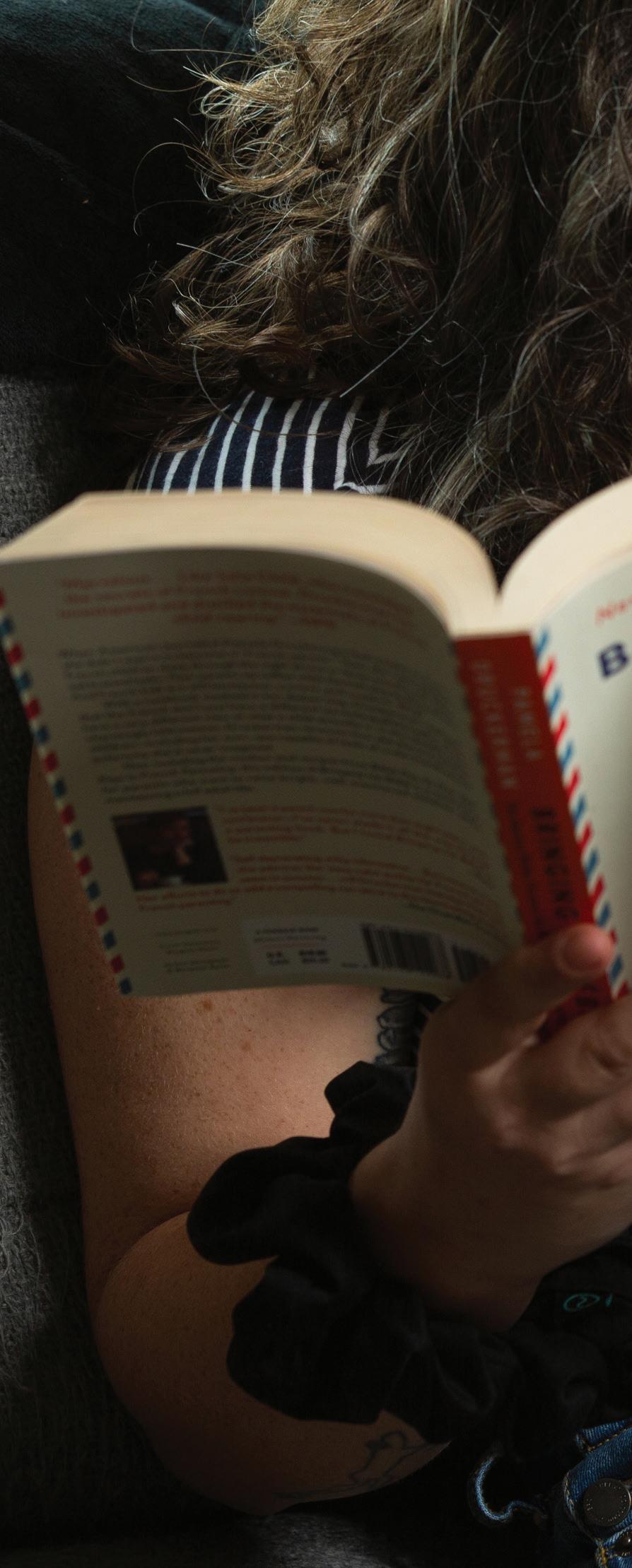
28 SEATTLE’S CHILD May/June 2024
F I R S T Y E A R S t h e
ON PAGE 30 >
so that when the time comes you do not feel like a stranger has entered the room and the most intimate experience of your life. In my practice, the pregnant person’s named provider actually catches the baby in about 60% of births.
Dream: You’ll write the perfect birth plan, and everything will go as planned.
Reality: Very, very few births go exactly as planned. Even the most ardent hope of birthing at home can turn quite unexpectedly into a hospital birth. Suddenly the dream of a vaginal birth in a hos-
pital must give way to a necessary C-section. Reframe what this important document is: It’s your Birth Wish List. Consider hiring a birth doula to support you and your plan during labor and in making informed decisions. To find and compare doulas in your area, go to DoulaMatch.net.
Dream: You will remember labor with joy.
Reality: Unfortunately, traumatic labor and deliveries do happen. What is considered a traumatic birth differs widely, but multiple factors may be involved, including loss of control, loss of dignity,
hostile medical providers, stress caused by family and others in the birthing suite, prior sexual trauma, surgery, or unexpected and unwanted interventions. A traumatic birth can lead to long-term distress and anxiety. Several therapists in the Puget Sound region specialize in traumatic pregnancy and birth and can be found at Perinatal Support Washington.
Dream: You will fall in love with your baby in utero — or, at the very least, it will be love at first sight at birth.
Reality: Take This Pressure
Off Yourself Right Now. Many, many moms (and dads) do not feel the mythic rush of love as a baby grows inside or when they finally arrive. Birth is an event. It is shocking to the person giving birth and shocking to the baby stunned by the environmental change. What you are feeling is normal. Know you are not broken. You are not a bad parent. You are human, and it will come.
ABOUT OUR WRITER
Cheryl Murfin is managing editor at Seattle’s Child. She is also a certified doula of 25 years. NestingInstincts.com

May/June 2024 SEATTLE’S CHILD 29
Mom Elise Hirshi and newborn August Hirshi Curry



Weekly music class for children birth to age 5 & the grown-ups who LOVE them! www.sunshinemusictogether.com
206.281.1111


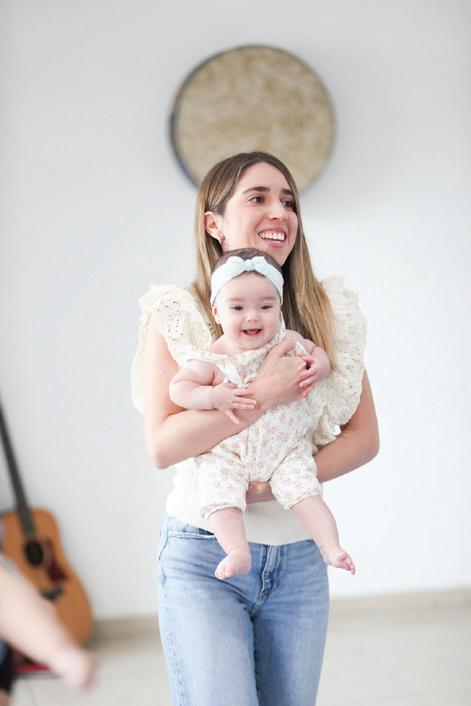


The Incredible Years
iden -b ed parenting ses
Learn age-appropriate parenting skills and tools in a supportive environment with other parents of kids in the same age range.
COHORTS FOR PARENTS OF CHILDREN AGES
birth - 8 months 8 months - 3 years 3 - 9 years 9 - 12 years
HELD ONLINE VIA ZOOM VIDEO CONFERENCE DAY AND TIME DEPENDS ON PARENT AVAILABILITY
13 weeks of 2-hour sessions with a certificate upon completion. Receive unlimited email support from the therapist leading your class.
Classes are only $25 per session.
EMAIL TO REGISTER m Hereth
c.hereth@thewfws.com
WFWS also provides counseling for families, children, teens and adults with Licensed Mental Health Therapist, Jasmine McCarthy. Jasmine can support grief, anxiety, depression, parent separation, ADHD, ODD, gender and sexuality questioning, and the BIPOC community.
THEWFWS.COM
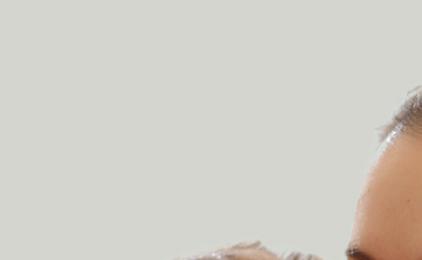
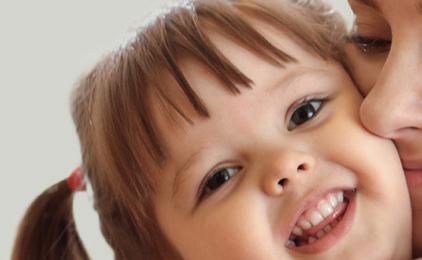
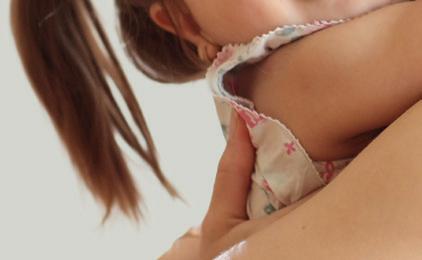
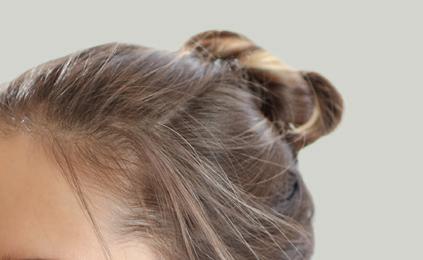





5
You are actually the expert. Parents are surrounded by experts — pediatricians, doulas, and so on, on almost any topic. Ultimately you are the expert on your baby because you spend the most time with them. Trust yourself.
6
Relationships change. From grandparents to friends to partners, things can change in ways you don’t expect. It can be challenging as your self-perception and needs shift. Clear communication is essential. Consider these classes to help protect your relationships.
• Bringing Baby Home is a workshop aimed at helping couples understand the impact of a baby on their relationship and keeping their relationship strong once baby arrives.
• Swedish Medical Center’s Grandparents Class is designed to help grandparents understand the latest research and ways they can lend support to the new family.
7
Your baby didn’t read that book. There isn’t a single book or Instagram page with all the tips for the “right” way to parent. There is no single right way. If there were, there would only be one book on the shelf! Your baby will have a unique temperament, personality, and other attributes. That means parenthood depends on finding your best style for raising them.
8
Feeding can be the biggest surprise. Despite all the information available prenatally, most new parents say feeding challenges are still the biggest postpartum surprise. Each feeding situation is unique leaving even the most prepared parents sometimes feeling overwhelmed. Informed support beginning immediately after birth can make a significant difference in developing a successful feeding plan. Consider hiring an IBCLC-certified lactation consultant or postpartum doula before the baby comes.
Here’s one practical tip: Hand express and collect colostrum before birth to be used in the first day or two if needed. Be sure to check with your care provider about when it’s safe to start expressing. And remember, there is never shame in choosing or needing to use formula.
ABOUT OUR WRITER
Megan Davis is a seasoned Certified Postpartum Doula at doulamegandavis.com
Green
West
Capitol Hill Queen Anne
Lake Magnolia
Seattle
30 SEATTLE’S CHILD May/June 2024
F I R S T Y E A R S t h e
“WE DIDN’T EXPECT THAT” CONTINUED FROM PAGE 28

take it or leave it
Use your paid family leave to do something wild!
by GREGORY SCRUGGS
Slotting a final pair of skis into an overstuffed roof box, I stepped back to admire my handiwork. The fully loaded Subaru Outback was ready for a month-long trip to the Methow Valley — an extended vacation that entailed yanking our toddler out of preschool and relocating our newborn to a cabin, sight unseen.
Fairytale or nightmare? In the end, this adventure — made possible by Washington Paid Family Leave — was far more the former.
After our older child, Lena, was born in 2021, we relished a leisurely summertime postpartum at home in Seattle, making midweek getaways to Tokeland,
Marrowstone Island, Glacier, and Orcas Island.
But as my wife and I prepared for Lena’s little brother Asa to arrive in January, we began dreaming up something different. We knew that newborn care is largely the same wherever you are, and that taking a long break from our professional responsibilities was unlikely to happen again any time soon.
In a few years, we realized, we’d be beholden to school schedules, making the prospects of spending this much wintertime away from home very dim.
To keep costs down, we rarely dined out, relying on food we prepared before Asa’s birth. We also brought dishes made by friends and family, specifically requesting easy-to-reheat meals. Taking dinner preparation out of the equation made parenting two kids with no child care far less daunting.
Timing was crucial to exe-
cuting this gambit. Fortunately, the baby came on time, so the calendar worked in our favor.
Before we hit the road, all medical appointments for Asa’s first month of life were complete, and we scheduled his two-month check-up for the first full day we were back home.
Our doctor gave us her blessing with a few caveats — seek medical attention if Asa had a high fever or his stool deviated from newborn mustard yellow.
Still, there’s no denying that we were rolling the dice. If there were birth complications, we would need to pull the plug. If something dramatic happened on the trip, we were hours instead of minutes from the closest medical institution.
We rented a well-appointed two-bedroom, two-bathroom cabin on a lovely wooded lot alongside a burbling river. The cabin cost $3,750, which breaks down to $125 per night. We calculated that by spending at least two weeks in the cabin we would break even; we stayed three weeks total.
We found the gorgeous floor-to-ceiling mountain views, breathtaking night sky, and serene quiet a more pleasant setting for midnight feedings and afternoon temper tantrums than
our cozy-but-getting-cramped Craftsman.
We also pre-purchased season passes to the Methow Trails system, so we could ski as much or as little as we wanted on any given day.
Staying in a more developed winter resort town would have offered more options for entertaining an active toddler, although it likely would have been more expensive. We did find a wonderful babysitter who provided respite for us and fun for Lena.
Other parents might choose a city break instead of an outdoor recreation destination, but for us the complete change of scenery was a prime motivation. And don’t hesitate to invite friends who can crash the party for a few days, especially those who can pull their weight by playing with a toddler or cradling a newborn.
Going away for the postpartum and new-baby leave period is not for everyone, but if you are fortunate enough to be able to use paid leave funds beyond meeting your family’s basic needs, consider an extended getaway. The luxury of time off is a uniquely precious commodity. Come next year you’ll likely be back to long weekends and a week or two here or there.
May/June 2024 SEATTLE’S CHILD 31
TAKE IT OR LEAVE IT: COURTESY OF GREGORY SCRUGGS
Yiting Lim, snowshoeing with 1-month-old baby Asa in a baby carrier, and toddler Lena in the Methow Valley.
Baby science
How (and why) to sign your baby up for UW research
by CHERYL MURFIN
Years ago, I sat with my baby on my lap in a small soundproof booth tucked in the back of a University of Washington research lab. My curiosity was what got us there.
As researchers played sounds in my 5-month-old daughter’s ears through tiny headphones, delicate equipment registered whenever she heard something. We found out her hearing was fine, and I felt a little pride in knowing she had contributed to the growing body of research on infant hearing. The experience was so enjoyable for both of us that we signed up to participate in two other infant studies.
I’m far from unique in my curiosity. About 1,800 infants and children are enrolled in UW child development research each year, and on average, 650 families of infants and toddlers are assigned to take part in studies each month.
And more participants are always needed.
“Right now, we have 15 different labs requesting infant and child participants,” says Dr. Ellen Levi, who manages the university’s study participant pool.
Infants as young as six weeks are needed for some studies, and researchers will soon be looking at newborns. Many studies are trying to understand what typical child development looks like while others seek to gain a better understanding of autism, Fragile X, Down Syndrome, speech and language delays and disorders, and deafness, says Levi.
Participating in child development research through the university’s Institute for Learning & Brain Sciences (I-LABS) has several benefits. Parents gain increased awareness about their child’s growth and behavior, learn about resources to enrich a child’s early learning environment and get paid for their participation. For most kids, it’s a fun outing.
And then there’s the element of giving back.
“The largest benefit of participating in research is undoubtedly the contribution to science itself,” says Dr. Christina Zhao, a
Research Assistant Professor at the UW’s Department of Speech and Hearing Sciences. Zhao directs the Lab for Early Auditory Perception (LEAP)housed within I-LABS.
“Our understanding of early human development is made possible by generations of children and families who participated and continue to participate in research.”
Erica Stevens, assistant director of the UW I-LABS, says UW has a vibrant research community. The labs have developed a simple way for families to volunteer for studies. Families opt into the labs’ participant pool, a database shared by research labs exploring questions about human development.
“We are constantly recruiting people of all ages and all backgrounds to join our pool,” says Stevens. “Parents can enroll their children in the pool as young as newborns by filling out an intake form. Any age is welcome.”
Interested in getting involved?
You can register your child in the Communication Studies Participant Pool at studies.uw.edu/join You can also call 206-616-6210 or email babylab@uw.edu to learn more.

32 SEATTLE’S CHILD May/June 2024
F I R S T Y E A R S t h e
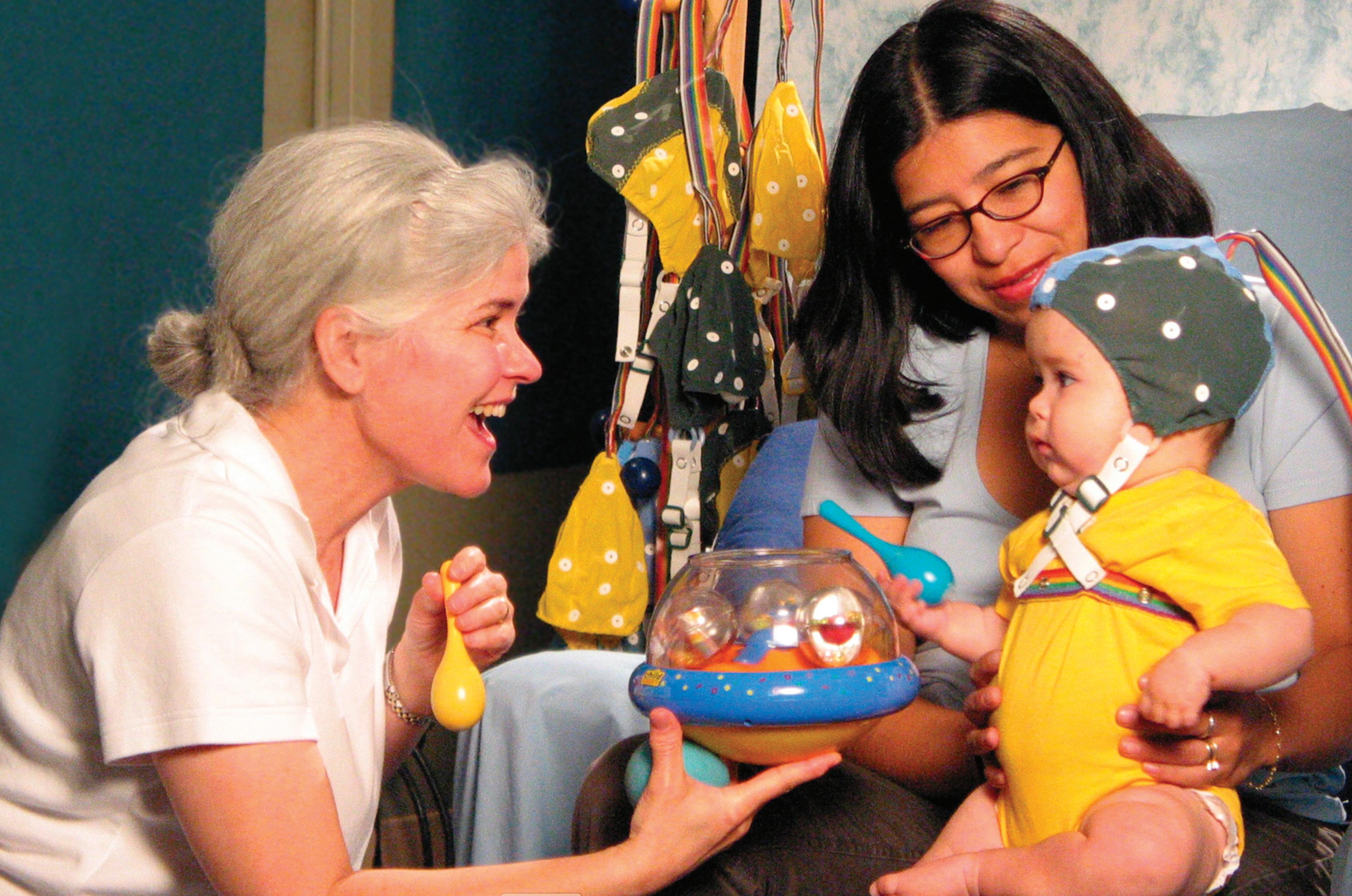

May/June 2024 SEATTLE’S CHILD 33 BABY SCIENCE: COURTESY OF UNIVERSITY
WASHINGTON
OF
Researchers in the UW’s Institute for Learning & Brain Sciences need local babies to learn more about infant and child development.

Let’s go to the park
5 playgrounds good for waddlers and toddlers
by SEATTLE’S CHILD STAFF photograph by JOSHUA HUSTON
Once a baby arrives, and especially when they start moving, you never look at parks the same way. Now it’s all about the playground: Is there equipment geared toward the waddler toddler crowd? Are there baby swings? Will it entertain little ones and older siblings?
These five playgrounds check most, if not all, the boxes:
Seattle PlayGarden
1745 24th Ave. S, Seattle
One of the true gems of Seattle, the Playgarden was designed as a fully inclusive space for children of all abilities. It offers safe and inclusive play structures, a climbing hill and garden, water play (no pool), and waddlers and toddlers will love the wide swing. The park is open during onsite preschool hours. Chickens and ducks roam the park during the day (please don’t feed them). Check out the park’s summer camp, staffed free play sessions, and many tot-friendly events. Restrooms available.
3seattleplaygarden.org
Yesler Terrace Park Playground
903 Yesler Way, Seattle
This playground offers colorful, all-abilities
play structures that wee ones will love and feel confident exploring, a spray park (summer beginning June 26, 11 a.m. to 8 p.m.) sculptures, and a turf hill designed for safe sliding or rolling. Plus awesome water and city views. Restrooms at Yester Community Center.
3seattle.gov/parks/allparks
Tot Lot Park
141 9th Ave., Kirkland
Better known as Turtle Park (for the large stone turtle that sits in the middle of the lawn), Tot Lot Park is a fully fenced, flat, and fabulous mini-park for toddlers. You’ll find a wellstocked sandbox, a small climbing structure with slides, ride-on toys, swings, and lots of grass. Restrooms: portable toilet.
3kirklandwa.gov
34 SEATTLE’S CHILD May/June 2024 F I R S T Y E A R S t h e

North
9930 124th Ave. NE, Kirkland
The “Castle Park” playground features — you guessed it — a castle of climbing structures, secret passageways, and slides. A toddler area has smaller (but just as cool) equipment, and everyone will love the tire swing. There is tons of grass for snacktime, a few small nature trails and boardwalks. No restrooms. 3kirklandwa.gov
Saint Edward State Park
14445 Juanita Drive NE, Kenmore
At Saint Edward State Park you’ll find a castle-themed wooden playground perfect for big kids, and an awesome fenced toddler area featuring tunnels, slides, bridges, swings, and a sandbox. There’s a large expanse of grass for picnics and lots of woodland trails to explore. Restrooms available. 3parks.wa.gov/find-parks
Do
toddlers
need ‘toddler milk?’
Pediatricians say no
by JULIE HANSEN
The ads about toddler milk are compelling, maybe even a little scary.
They claim that “toddler formula” is “designed to help support your little one’s growth.” They claim to provide “nutrients toddlers might not get enough of,” including those supporting crucial brain develop ment.
In reality, such products are a “complete unknown,” according to Dr. Susanna Block, a Seattle pediatrician with Kaiser Permanente. “We don’t know what’s in them,” because, unlike infant formula, these products are not regulated by the FDA.
The arrival of the costly products, with their pitches playing to parents’ concerns, prompted the American Academy of Pediatrics to issue a clinical report stating that toddler milks and formulas provide no nutritional advantage.
“Save your money. Buy food,” Dr. Block says. What to give instead of toddler milk
While we had her on the line, we asked Dr. Block to go over pediatricians’ general advice involving babies, kids, milk and food. It’s a great refresher, even if you think you already know all of it:
• Birth to one year: Give primarily breast milk or infant formula.
• Ages 1-2: Switch to whole cows’ milk. At this point, a child should be eating a variety of foods after starting with purees. Around the first birthday is also “a great time to go from bottle to sippy cup,” Dr. Block says. Continuing on a bottle for too long can raise the risk of tooth decay. Plus, “Kids want to do it anyway,” she says of the switch.
• After age 2: Switch to low-fat or nonfat milk.
• Exceptions: Kids with allergies or special nutritional needs. Those families should con sult their practitioner to determine the best alternatives.
Kids and milk: how much?
Dr. Block says 1- and 2-year-olds can have up to 16 ounces (2 cups) of milk per day. From ages 2 to 5, that can increase to 24 ounces.
Is there such a thing as “too much” milk? There can be, Dr. Block says. It’s possible that a milk-adoring child will fill up on it and then not get enough other foods. Her advice? Give them milk after the meal.
Conversely, what about a kid who turns up their nose at milk? The key is to make sure they’re staying hydrated and getting enough calcium, protein and Vitamin D. Foods such as yogurt and cheese can help.
As for juice, soda pop and other sweet drinks: These should not be given daily but perhaps reserve them for special occasions, Dr. Block says. “And never in a bottle.”

May/June 2024
Rose Hill Woodlands Park
Miles Huston at Yesler Terrace Park Playgound.
FIRST YEARS the
Consider these options if you’re looking for a preschool program, childcare facility, support, or service for a parent, child, or family. For more choices check out our digital directories, highlighting local businesses in the Seattle area at 3seattleschild.com/directories
Cloud 9 Academy
Ages 30 months-5 years
4805 NE 45th Street, Seattle 98105
206-765-9100
info@cloud9academy-seattle.org
cloud9academy-seattle.org
All children are welcomed at Cloud 9 Academy. They are given the opportunity to grow at their own pace with individual attention to each child’s unique needs. Our teachers embrace an emergent, project-based curriculum and provide a material-rich environment with a focus on social-emotional growth and creativity for enhancing thinking-skills, problem-solving, and learning to get along with others.
Cosmopolitan Kids
Children’s Academy
Birth–8 years old
200 1st Ave. W, Suite 100, Seattle 98119 1000 2nd Ave., Suite 204, Seattle 98104 1-888-862-6813
bmartinez@cosmopolitankids.com cosmopolitankids.com
Cosmopolitan Kids Children’s Academy provides a warm, engaging environment that incorporates a challenging, child-centered curriculum while placing high priority on building relationships between caregivers, children and families. Our classrooms are designed to help promote hands-on learning and independent exploration. We strive to meet each child’s needs individual-

36 SEATTLE’S CHILD May/June 2024 F I R S T Y E A R S t h e
36 May/June 2024 Paid Advertising Section
ly and encourage families to become partners in their child’s care.
Department of Children, Youth & FamiliesStrengthening Families Washington
Prenatal to 5
1500 Jefferson St. SE, Olympia 98504
360-688-3592
strengtheningfamilies@dcyf.wa.gov dcyf.wa.gov/services/childdevelopment-supports/sfwa
Strengthening Families Washington is a program within the Department of Children, Youth & Families whose main focus is to help families become stronger together, through a variety of tactics. These include home visiting, community outreach and partnerships, and funding opportunities with local organizations. We believe in partnering with parents and caregivers and encourage leadership and collaboration in all our work.
Diaper Stork
Ages 0-3
118 N 36th Street, Seattle 206-928-6982 service@diaperstork.com diaperstork.com
At Diaper Stork, we’re committed to building a greener future by reducing waste one diaper at a time. Each week, we deliver a combination of cloth and plant-based disposable diapers to your doorstep. You leave out the used diapers, and we take care of the mess by professionally cleaning and composting dirty diapers.
Illumination Learning Studio
Ages 2-11
7720 Greenwood Ave. N, Seattle 98103
5501 8th Ave. NW, Seattle 98117 206-900-7452
info@ilskids.com ilskids.com
ILS’s half-day Preschool program, starting from age 2, offers engaging music, drama, art, yoga, Spanish and Smart-Board learning where children explore language, social skills and cultural arts. By age 4, they transition to Pre-K, enhancing their readiness for Kindergarten. Written by an accredited early childhood educator, ILS’s curriculum exceeds Washington State’s standards, fostering creativity, confidence and a love for learning.
Oona Copperhill Photography
253-549-5825
ocopperhill@gmail.com
oonacopperhill.com
Oona Copperhill is an award-winning photojournalist who has been documenting families in the Seattle area for over twenty years. If you’d

Your guide to a kid-friendly city








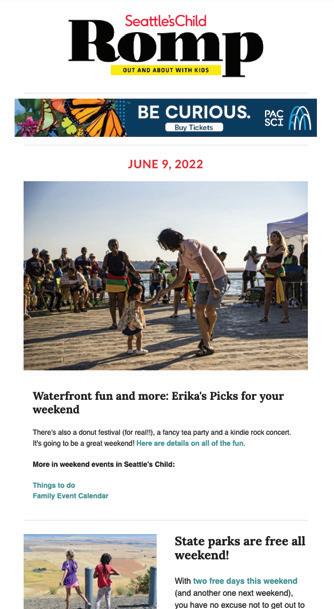



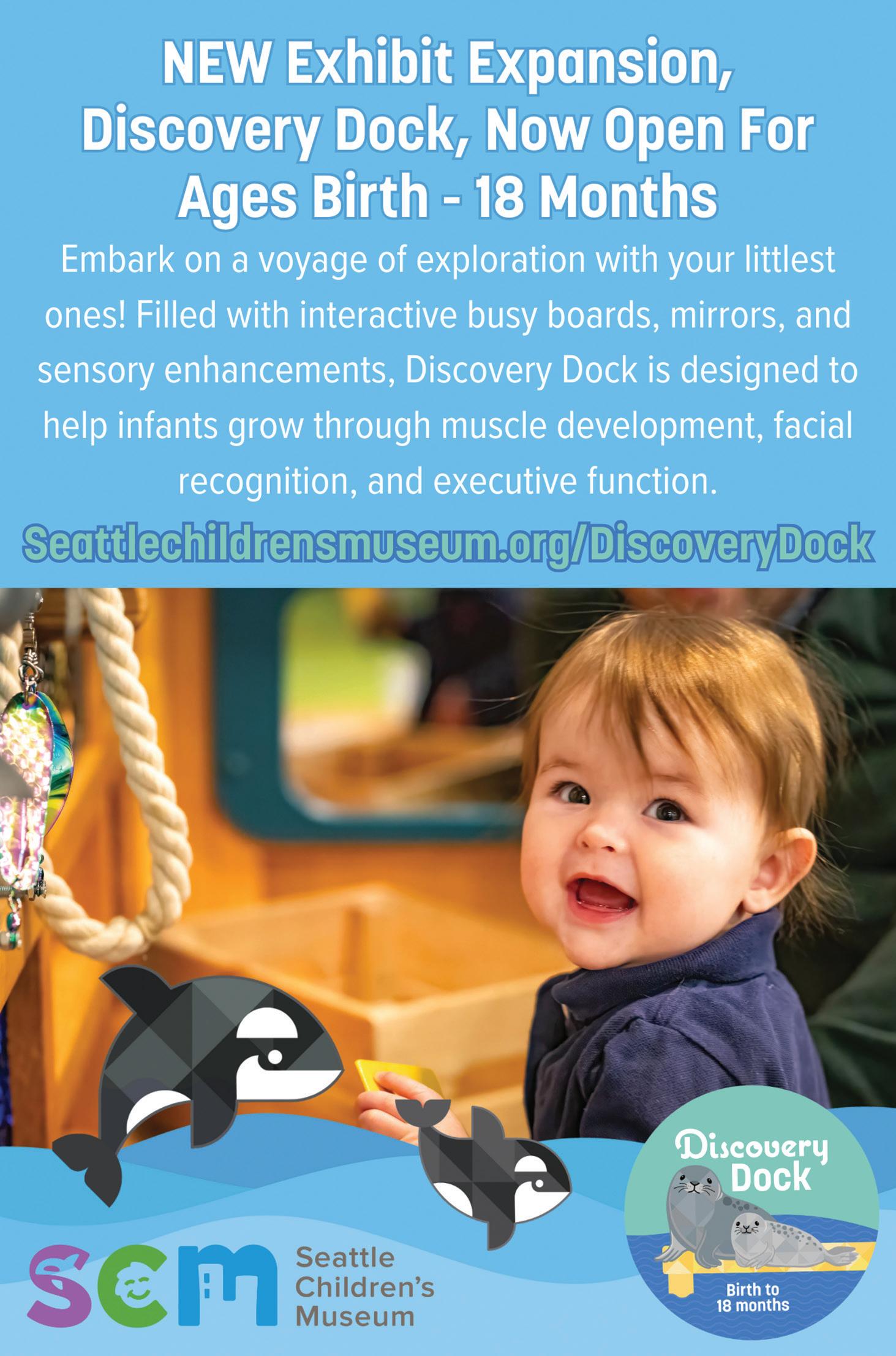
Subscribe to our free e-newsletters for family fun around the Puget Sound! deliv ed to y r inb ! » seattleschild.com/subscribe May/June 2024 SEATTLE’S CHILD 37
Paid Advertising Section May/June 2024 37

like natural, low-stress photos of your pregnancy, baby, family, or lifestyle, look no further. Please visit www. oonacopperhill.com to view galleries and reviews.
Primrose School of West Bellevue
Ages 6 weeks–5 years old
1150 114th Ave. SE, Bellevue 98004 425-315-7305
admin@PrimroseWestBellevue.com
PrimroseWestBellevue.com

It’s so much more than a gift!
Washington State Heirloom Birth Certificate
A portion of the proceeds from each birth certificate benefits the Children’s Trust Fund of Washington, administered by the Washington State Department of Children, Youth & Families (DCYF) Strengthening Families Program.

Learning is exciting, and your child is built to learn with a natural curiosity that knows no bounds. Through a balance of play and nurturing guidance, Primrose teachers foster that curiosity and help your child feel a sense of pride and accomplishment that lays the foundation for a lifelong love of learning. Offering year-round STEAM-based programs and summer adventure activities.
Seattle Children’s Museum’s Discovery Dock



• This official birth certificate is personally signed by the Governor and State Registrar.

• Frameable keepsake.




Ages Birth-18 months
305 Harrison St., Seattle 98109 206-441-1768
info@seattlechildrensmuseum.org seattlechildrensmuseum.org




• Certificate is 8 1/2 x 11 and includes the name, date and place of birth, as well as the name and birthplace of the parent(s).
• For each $45 purchase of an Heirloom Birth Certificate, $20 is tax deductible.

To find out more information on Children’s Trust, child abuse prevention and the DCYF Strengthening Families Program visit: www.dcyf.wa.gov/services/ child-developmentsupports/sfwa


To buy a certificate, visit the Department of Health or order online at: www.doh.wa.gov/LicensesPermitsandCertificates/ BirthDeathMarriageandDivorce/OrderCertificates/ HeirloomBirthCertificates’




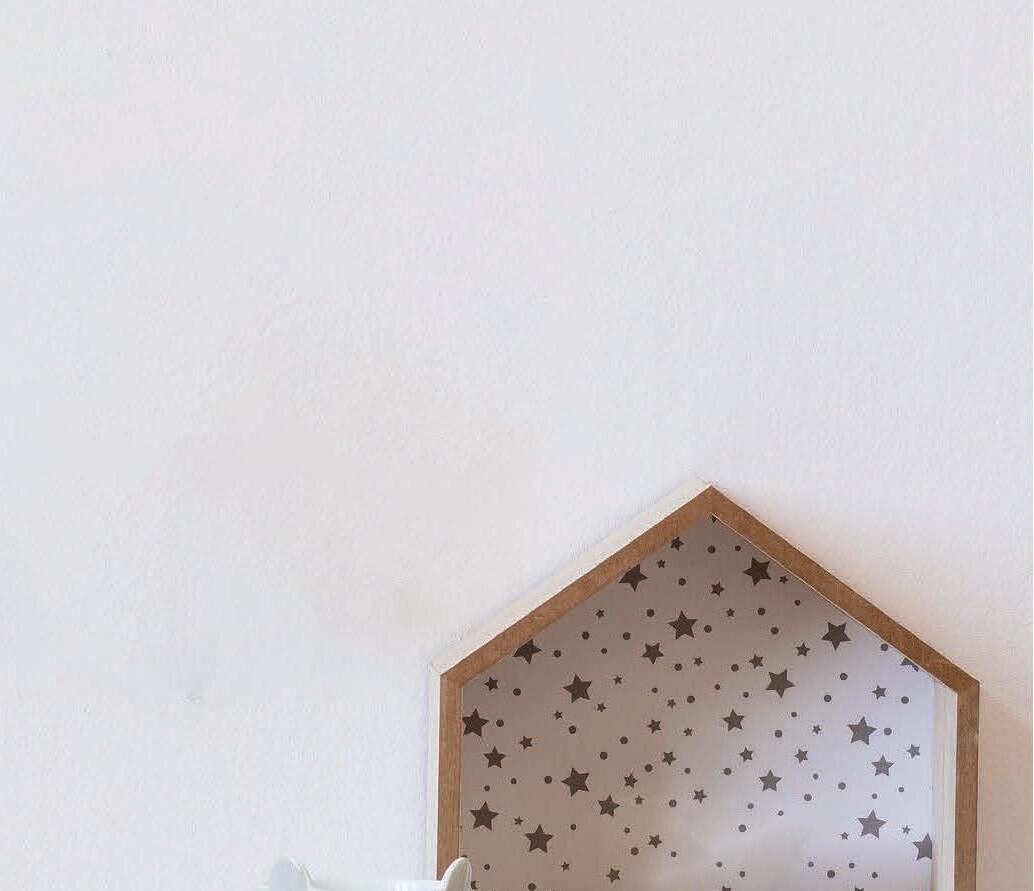

Explore Discovery Dock, Seattle Children’s Museum’s newest exhibit expansion in Orca Cove, designed for infants aged from birth to 18 months. Your child will use their developing muscles to sit up and pull, gain facial recognition skills while looking in mirrors, and interact with busy boards, developing their auditory, visual and tactile senses.
Sunshine Music Together
Birth to 8 years old
Queen Anne, Magnolia, Green Lake, Capitol Hill & West Seattle 206-281-1111 info@sunshinemusictogether.com
sunshinemusictogether.com
Sunshine Music Together is the eighttime Golden Teddy Award Winner for Best Music Program in Seattle! A joyful, innovative, internationally recognized music and movement program for children ages newborn to five years and the grown-ups who love them. Also offering Rhythm Kids classes for children aged 5 – 8 years. Join Sunshine Music Together’s musical community today.
Women and Family Wellness Studio
In-home and online
c.hereth@thewfws.com thewfws.com
WFWS provides counseling and parenting classes for families. Counseling services are available with Licensed Mental Health Therapist Jasmine McCarthy. Jasmine serves kids ages seven and older, including teens, adults, and family counseling. WFWS offers Incredible Years and Triple P
DCYF FS_0016 (09-19)
38 SEATTLE’S CHILD May/June 2024 F I R S T Y E A R S t h e
38 May/June 2024 Paid Advertising Section
parenting classes to parents with newborns up to 18 years old. The class depends on the age of your child.
Wonderland Child & Family Services
2402 NW 195th Place, Shoreline 98177
206-364-3777
info@wonderlandkids.org
wonderlandkids.org
We are a nonprofit agency serving children with developmental delays, disabilities, and prenatal substance exposure. Founded in 1969, Wonderland is dedicated to helping children meet healthy developmental milestones. We reach hundreds of families every month through Early Childhood Programs & Services and Hope RISING Clinic for Prenatal Substance Exposure. Our direct service providers are uniquely trained to provide trauma- and FASD-informed care.
Index
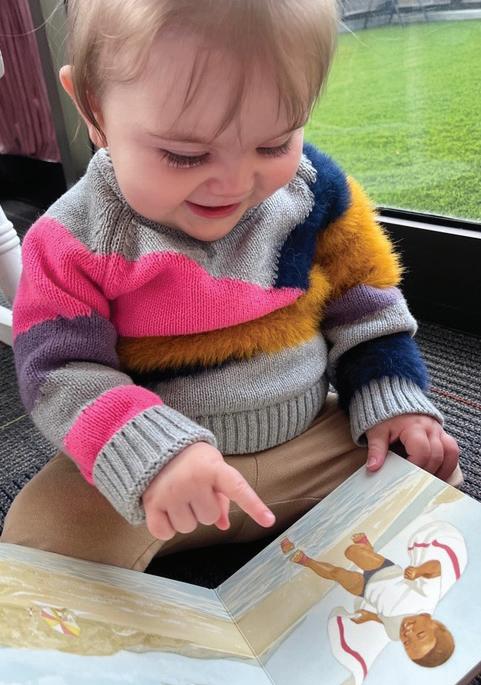
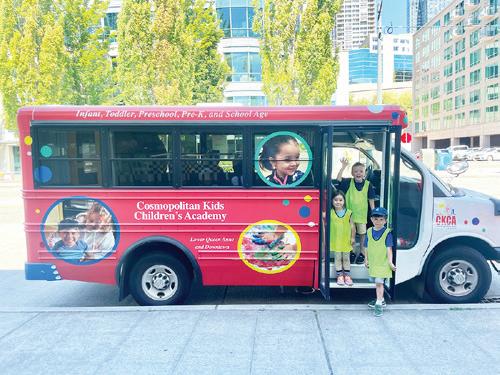


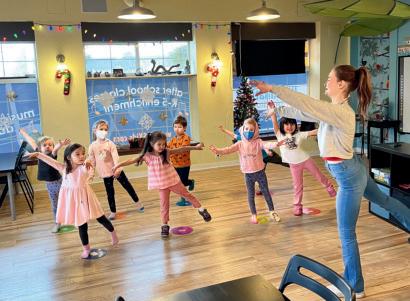

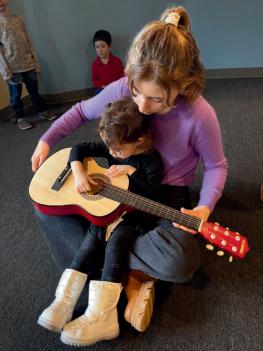
Preschool and Pre-K Enrollment Visit Our Website www.ilskids.com For More Information 206.900.7452 TOUR TODAY May/June 2024 SEATTLE’S CHILD 39
Paid Advertising Section May/June 2024 39
Cloud 9 Academy
36 Cosmopolitan Kids Children’s Academy ................................ 36 Department of Children, Youth & Families - Strengthening Families Washington 37 Diaper Stork 37 Illumination Learning Studio 37 Oona Copperhill Photography ............ 37 Primrose School of West Bellevue 38 Seattle Children’s Museum’s Discovery Dock 38 Sunshine Music Together 38 Women and Family Wellness Studio 38 Wonderland Child & Family Services 39
.....................................








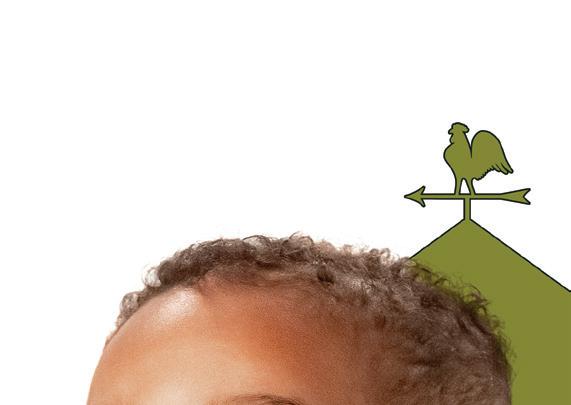
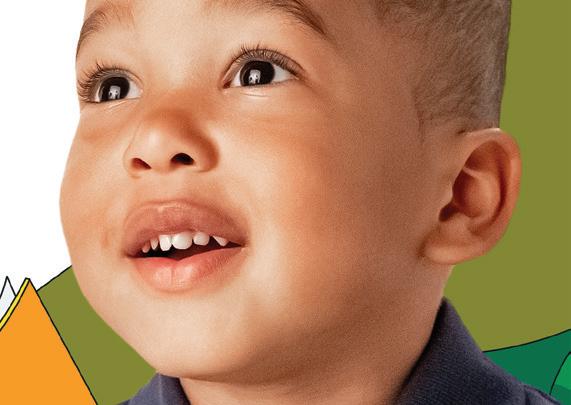

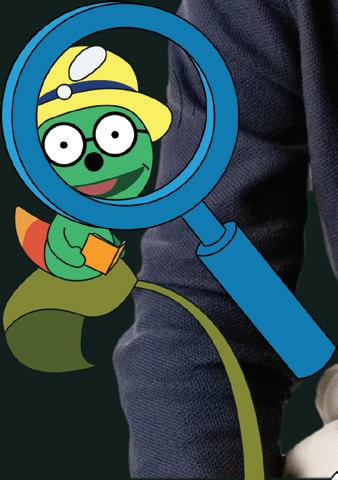




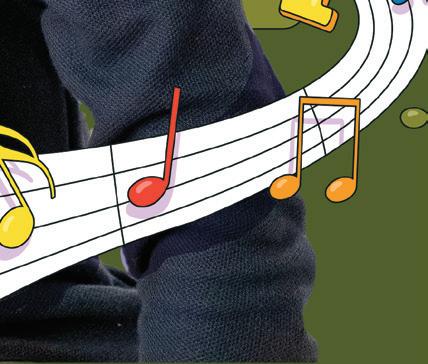
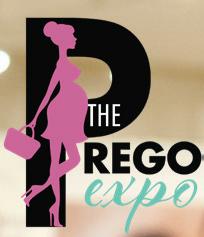





Each Primrose school is a privately owned and operated franchise. Primrose Schools is a registered trademark of Primrose School Franchising SPE, LLC. ©2024 Primrose School Franchising SPE, LLC. All rights reserved. Now Enrolling Primrose School of West Bellevue 425.315.7305 | PrimroseWestBellevue.com We know that children learn best when they are engaged, challenged and enjoying themselves. That’s why Primrose school teachers use a balance of purposeful play and nurturing guidance to make the most of every day. We know how young children learn best. Prego Expo is Coming to Seattle for One Day Only! June 1, 2024 Meydenbauer Center Product Demos · Parenting Seminars · Bump-Worthy Selfie Stations · Baby Shower Games · Swag Bags 50+ Grand Prize Giveaways More info & Tickets Featuring Top Brands in the Baby Space! Pregnancy & Baby Expo 40 SEATTLE’S CHILD May/June 2024 F I R S T Y E A R S t h e 40 May/June 2024 Paid Advertising Section




















































































